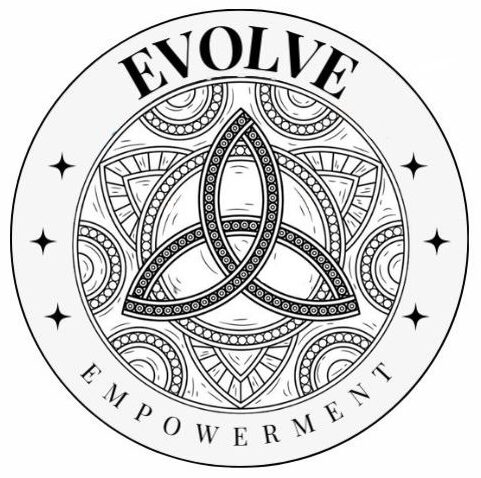The Need for Slow Living in a Hectic World
We are sprinting. From morning alarms to inbox avalanches, from errands that multiply like rabbits to social feeds that never sleep. We run on caffeine, urgency, and the illusion that faster means better.
But does it? Somewhere along the way, speed has hijacked serenity. And we, the frantic dreamers, ache for stillness, even if we don’t always know it.
Slow living is not a luxury for monks or wanderers. It is a quiet rebellion, a deliberate unlearning of the cult of busy.
Rooted in ancient rhythms and old-world sensibilities, this lifestyle invites us to breathe, to notice, to feel. It beckons us to remember what life feels like when it isn’t constantly slipping through our fingers.
The digital age has turned our attention into currency. The pace is no accident. But there’s an awakening happening—a hunger for more meaningful days, for life that doesn’t just look good on a grid.
This piece is a map for those who are ready to trade burnout for balance, and noise for nuance.
Embracing Mindfulness and Being Present
Mindfulness. That elusive word that feels both sacred and overused. But beyond the buzz, it simply means being here. Not in last night’s regret or tomorrow’s chaos. Just here.
I once sat in a coffee shop and realized I hadn’t actually tasted coffee in weeks, though I drank it every day.
My body was there; my mind, elsewhere. That moment, oddly jarring, was also freeing. I began sipping slower, eating slower, even arguing slower. Not always, but enough to notice.
Simple rituals help. A deep breath before replying. A walk without a podcast. A meal without screens. These aren’t grand changes. But they are profound.
Psychologically, the present is where our joy lives. When we slow down, cortisol levels drop. Attention deepens. Relationships soften. Even our posture shifts.
And connection—true, nourishing connection—only happens when we actually show up. Fully. For ourselves and for others.
For more and similar articles, you can go here.

Simplifying Your Environment and Lifestyle
Slow living begins in the spaces we inhabit. The clutter in our homes often mirrors the clutter in our minds.
I cleared my desk once, just for fun. By the end of the day, I felt less anxious. Coincidence? Maybe. Or maybe our environments whisper to us in ways we rarely hear.
Minimalism isn’t about sterile aesthetics. It’s about stripping life back to the essentials—not to have less, but to feel more. More clarity, more calm, more choice.
We say yes too often. Out of guilt, habit, or fear of missing out. But freedom lies in fewer commitments. In learning to protect our time like it matters—because it does.
Many who’ve adopted simplicity describe it not as sacrifice, but as liberation. They tell stories of rediscovered hobbies, rekindled relationships, and the strange joy of an empty calendar.
If you’re looking for tools to support this shift, platforms like Wealthy Affiliate can help you build intentional online ventures—ways to align income with a slower lifestyle.
The Joy of Intentional Living and Self-Discovery
There is power in saying: I choose this. Intentional living is not about having it all figured out. It’s about walking with direction, even if the path is foggy.
When we set deliberate goals, we begin to filter the noise. The world tells us to chase more. But what if “more” isn’t what we need?
I once knew a woman who quit her six-figure job to start a garden and teach pottery. People thought she’d lost her mind. But she glowed. Her days had texture. Her laughter, weight.
Happiness often hides in alignment—when our actions echo our values. When our calendars make sense with our hearts.
You don’t have to leap dramatically. Sometimes, it’s enough to just ask the right questions: What do I want more of? What do I want less of? And then to listen, quietly.
For those on this path, platforms like this resource offer community and guidance for designing a life aligned with meaning and purpose.

The Power of Connection in a Slower Life
Slowness creates space for others.
Think of your last real conversation. Not a “how are you?” tossed like a frisbee, but a sit-down, eye-meeting, laugh-spilling kind of talk. Those are rare now. But they shouldn’t be.
When we unhurriedly invest in people, our lives bloom. Studies show deep social bonds extend life spans and buffer against depression. But beyond data, we simply feel better.
In Italy, I once watched an elderly couple walk arm in arm, pausing often to greet neighbors. No phone in sight. Just presence. Just place.
Modern culture sells independence as a virtue. But interdependence—community, connection, shared moments—that’s where richness lives.
Even in cities, even in chaos, it’s possible. Book clubs. Shared meals. Eye contact. A slower life makes room for them all.
Cultivating Joy Amidst Chaotic Times
Slow living is not an escape.
It’s a return. To rhythm. To roots. To the sacred ordinary.
It doesn’t demand that we abandon ambition or flee society. It invites us to reimagine them. To build lives that feel like our own, not someone else’s timeline.
Start small. One breath. One choice. One minute of quiet rebellion.
If your heart aches for more depth, for a sense of soul in the digital din, this lifestyle may be your answer. And if you’re ready to begin crafting it—perhaps with a slower kind of work, or a side project aligned with your pace—consider starting here: Wealthy Affiliate.
The world won’t slow down. But you can.
And maybe, just maybe, that will change everything.

FAQ Part.
What is slow living?
Slow living is a lifestyle choice that emphasizes mindfulness, intentionality, and simplicity. It’s about slowing down to savor life rather than rushing through it.
How can I start living more mindfully?
Begin with small changes: pause before reacting, take daily walks without distractions, and practice gratitude. Mindfulness grows with consistency, not perfection.
Is slow living realistic with a full-time job and family?
Yes. It’s less about time and more about intention. Even five minutes of conscious presence daily can shift your experience. It’s about quality, not quantity.
Does slow living mean giving up ambition?
Not at all. It’s about aligning ambition with values, choosing depth over breadth, and pursuing goals that truly matter.
Can slow living improve mental health?
Absolutely. Studies show it reduces stress, anxiety, and burnout. It supports better sleep, healthier relationships, and a deeper sense of purpose.
What are some resources to help me get started?
Online communities and platforms like Wealthy Affiliate offer tools and support to create more intentional, value-driven careers and lifestyles.

